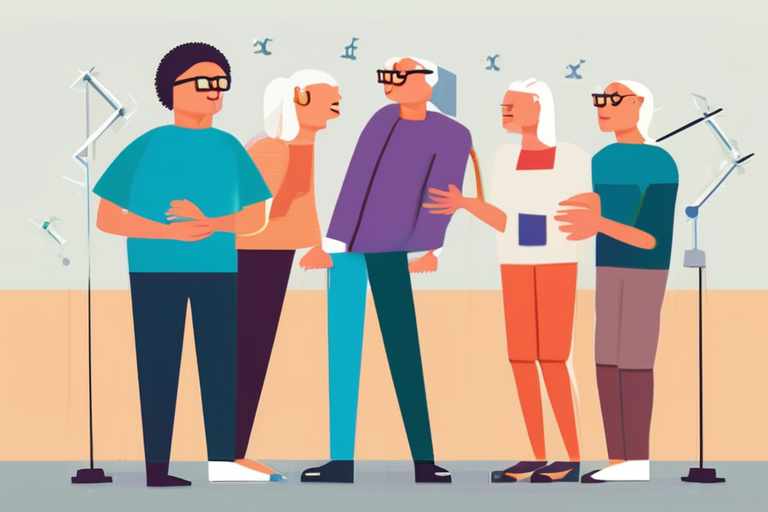"Friendships Rewind Time: Study Finds Social Bonds Slow Aging at Cell Level"


Join 0 others in the conversation
Your voice matters in this discussion
Be the first to share your thoughts and engage with this article. Your perspective matters!
Discover articles from our community

 Hoppi
Hoppi

 Hoppi
Hoppi

 Hoppi
Hoppi

 Hoppi
Hoppi

 Hoppi
Hoppi

 Hoppi
Hoppi

BREAKING NEWS UPDATE China parade shows Xi as global leader, with military to rival US10 minutes agoShareSaveLaura BickerChina correspondent ShareSaveGetty …

Hoppi

Breaking News: Thai PM Ousted by Court After Explosive Phone Call Scandal Thai Prime Minister Paetongtarn Shinawatra has been removed …

Hoppi

UK Government Fails to Seek Climate Advice on Heathrow Expansion Plans The UK government has yet to formally request climate …

Hoppi

Germany's Bid to Lead in Autonomous Driving Faces Roadblocks BERLIN, GERMANY - SEPTEMBER 24, 2025 - Germany's ambitious plan to …

Hoppi

BREAKING NEWS A young Philadelphia Phillies fan's home run ball was stolen from him during a game against the Miami …

Hoppi

Egg-Eating Worms May Hold Key to Saving Chesapeake Bay's Blue Crabs A groundbreaking study published in the journal PLOS One …

Hoppi